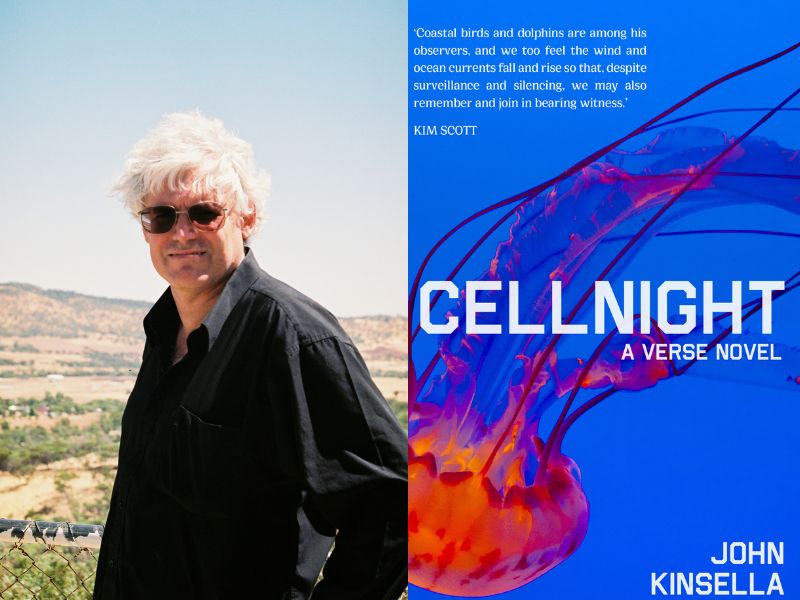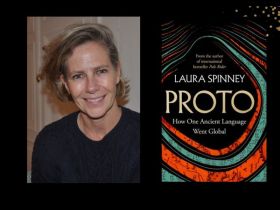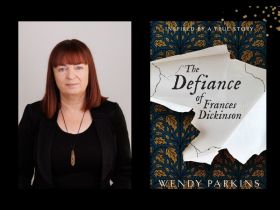Cellnight: A verse novel creates a richly textured tapestry of quintessential Australia by layering images upon images, until a multidimensional tableau has been created that is lively and multifaceted. Told from a pro-Indigenous perspective, John Kinsella’s poetry merges pre-and post-colonial times, the natural world with artificially-constructed habitats, and Indigenous and non-Indigenous perspectives, all within the narrative of a man incarcerated.
Divided into two parts, a coda and postscripts, Cellnight has an attractive cover with rich deep colours that invite the reader to delve into the intersecting worlds inside. Within individual stanzas and across poems, by the author’s remarkable talent the reader is drawn into not one, but many, disparate worlds, which blend into one cohesive whole.
Kinsella’s writing deftly integrates themes of Indigenous perspectives (explored through systemic racism and abuse), politics (portrayed through empty policies of domestic and foreign governments, decided with the notable absence of the voices of those directly affected by those policies), nuclear warships in Australian ports (where ‘Dolphins / arcing between / warships / have irrepressible / memories’ about ‘this / crisis of nuclear / weapons’ which ‘is imprinted / in cellnights / at 3am’), and the environment, framed through a Noongar perspective (the lamentation about the destruction of a river ‘saline / from both ends / increasingly’ is illustrated through ‘harbour dolphins’ uttering ‘a signature / whistle’ … speaking across / the threshold / to river dolphins / coming down / closer’).
Using various settings in Fremantle and Perth, the narrative cycles between the inside of a jail cell, transient life on the streets, secure housing, then incarceration once again: an all-too-familiar pattern for many disenfranchised Australians.
Settler-names for well-known landmarks are written in quotation marks, indicating they are mere nicknames to those places’ far older, original names, even if those names are not remembered through displacement brought about by colonisation. In this way, the erosion of culture and loss of connection to Country for local Indigenous peoples is exposed, as the author searches for his heritage: ‘Where does / your past / so recent / belong in here?’
On the surface the novel is a quick read. However, for readers to skim it would be to deny themselves the pleasure of sinking into Kinsella’s sumptuous descriptions. The spacing of the verses separates as well as sequences thoughts, inviting the audience to read it with several interpretations. Diverse vocabulary suits the poetic form, enlivening the writing. At other times, the same word is applied across different contexts, stretching understanding and inviting deeper contemplation. Every action has a reaction, made clear through Kinsella’s correlations.
Read: Book review: Anam, André Dao
To read Cellnight: A verse novel is a rewarding experience, one that will leave its audience feeling fulfilled and richer in spirit, delighting in the stunning imagery and revelling in its beautiful writing.
Cellnight: A verse novel by John Kinsella
Publisher: Transit Lounge
ISBN: 978-0-6484140-9-4
Format: Paperback
Pages: 208pp
Publication date: 1 April 2023
RRP: $28.00





